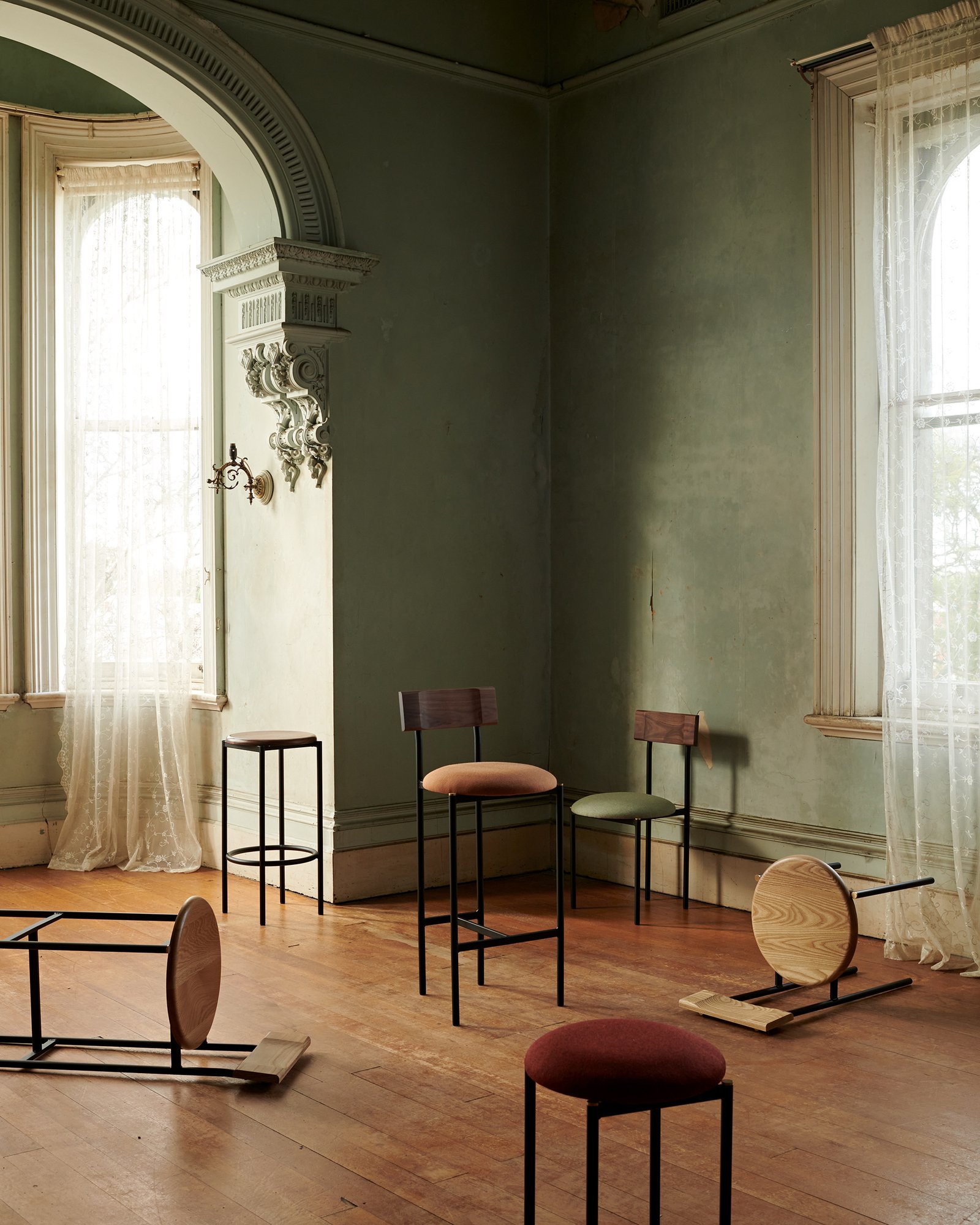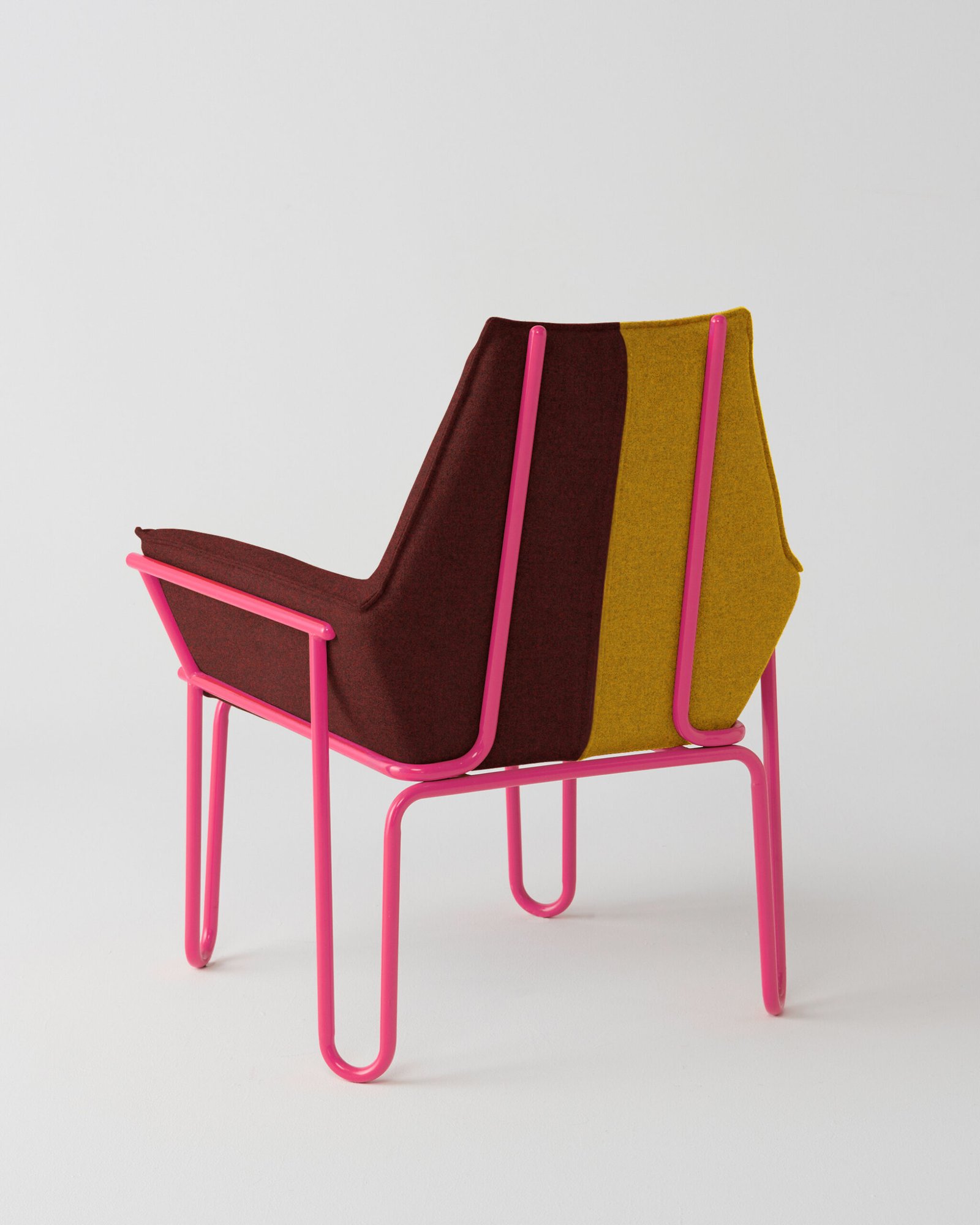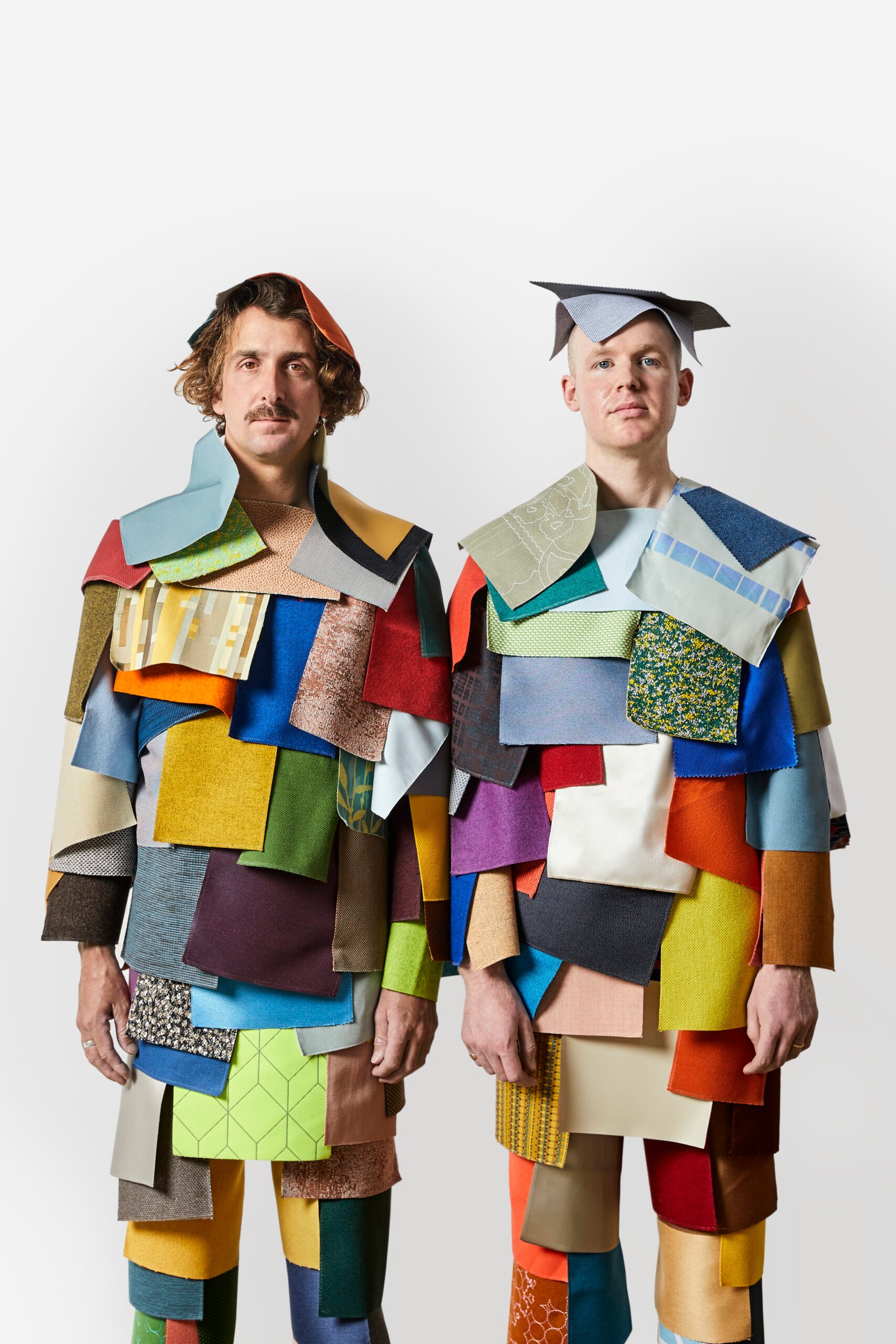
In the bustling world of design, few names resonate with as much impact as Dale Hardiman. A Melbourne-based designer, Hardiman has made significant strides in furniture and object design, championing sustainability and innovation. His journey, from humble beginnings to co-founding the iconic brand Dowel Jones, is a testament to his visionary approach and dedication to the craft.
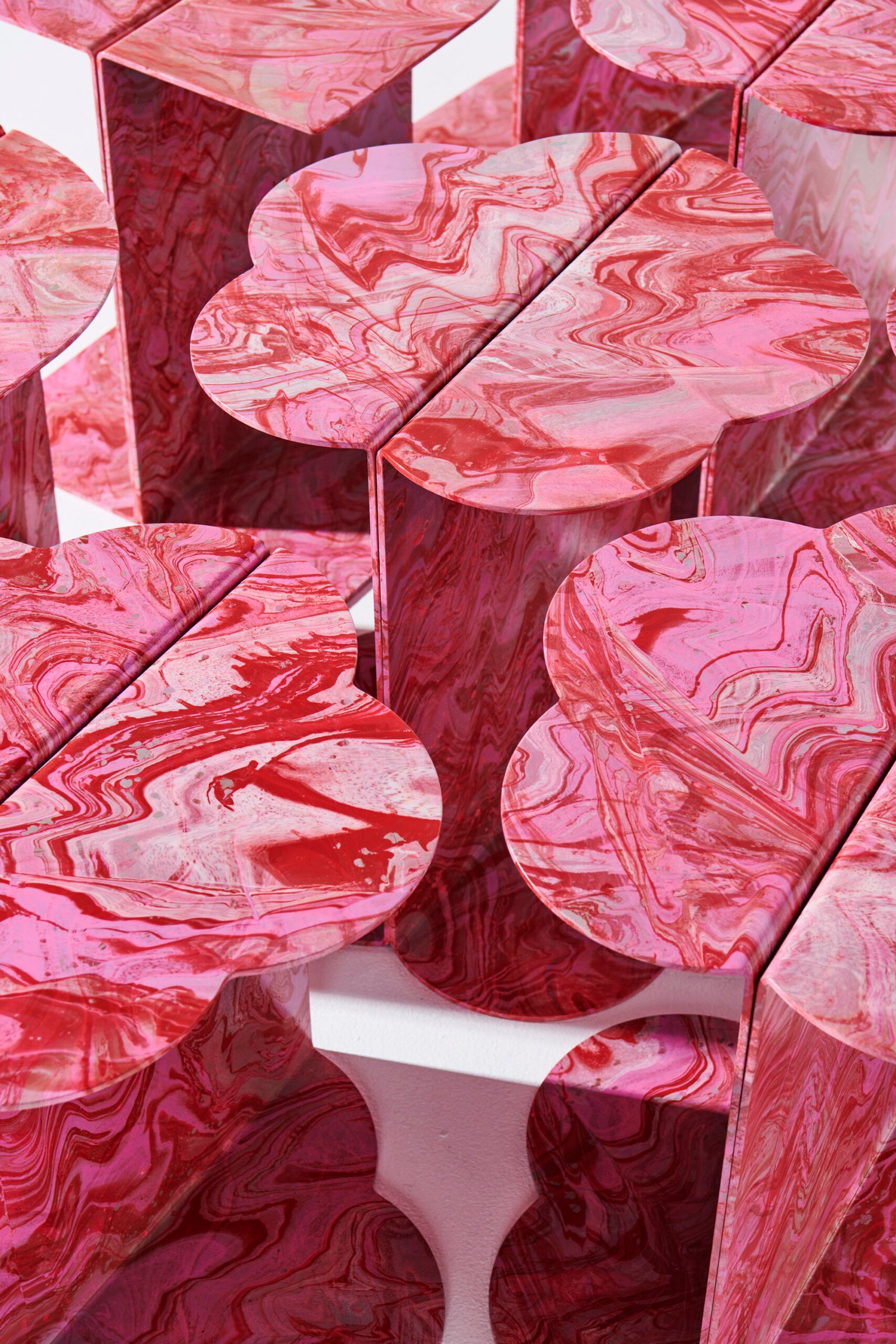
The Genesis of a Design Visionary
Reflecting on his roots, Dale Hardiman shares, “Adam and I completed a two-year furniture design course at RMIT before going on to complete honors in Industrial Design also at RMIT. We had a lot in common both coming from outside Melbourne: Adam traveled from Geelong to study, and I moved from Bendigo to study.” This shared journey laid the foundation for Dowel Jones, a brand that officially took shape during their third year of Industrial Design.
Before Dowel Jones, Adam Lynch, Hardiman’s co-founder, worked as a CNC machinist, while Hardiman himself served as a personal assistant to an architect. This blend of technical expertise and creative ambition has been the cornerstone of their collaborative success. “Adam has always been interested in the making side of objects, and my interest has always been in everything outside of that, so I think that’s made us complement each other,” Hardiman elaborates.
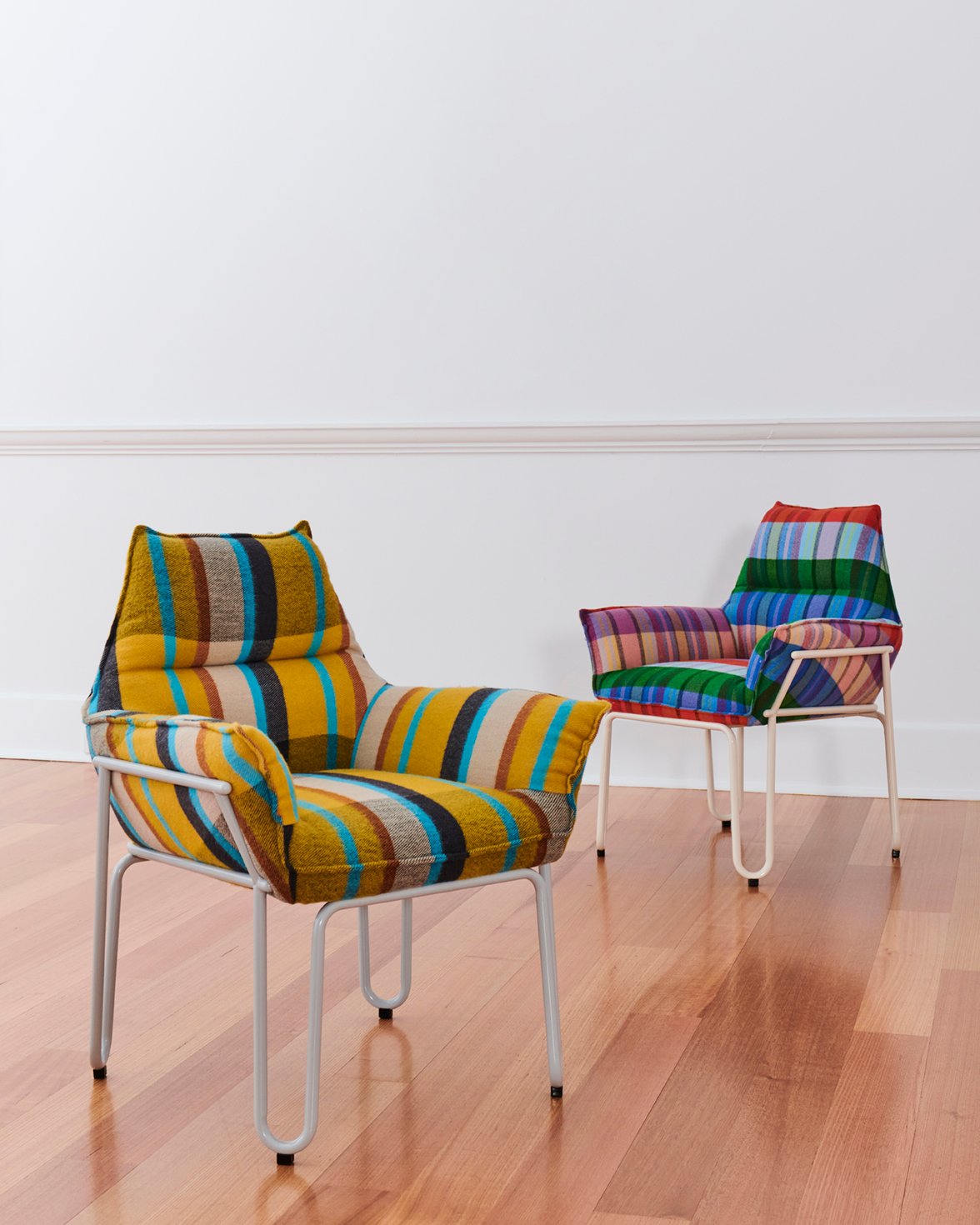
The Birth and Evolution of Dowel Jones
Dowel Jones is more than just a furniture brand; it’s a dynamic entity constantly evolving with its founders. Hardiman describes the brand’s unique approach: “We are formally a furniture, lighting, and accessories brand. Until 2019, we ran the brand much like any other furniture brand. When most of us went into the first lockdown, we decided to start using our social media accounts to take an interest in the people around us and to try and get them actively creating.” This pivot led to the inception of the Design From Home Competition, a clear reflection of their motto, ‘Anything but Ordinary.’
This innovative spirit is epitomized in the Sister collection, a series of furniture pieces born from a serendipitous collaboration with New York-based designer Tom Hancocks. “I first met Tom Hancocks in Melbourne over coffee as we’d been speaking online. I think we both quickly realized how similar we were, and so started talking about how we could formally work together,” says Hardiman. This collaboration seamlessly blended Hancocks’ 3D artistry with Hardiman’s tangible design expertise, resulting in a collection that is both aesthetically pleasing and functionally superior.
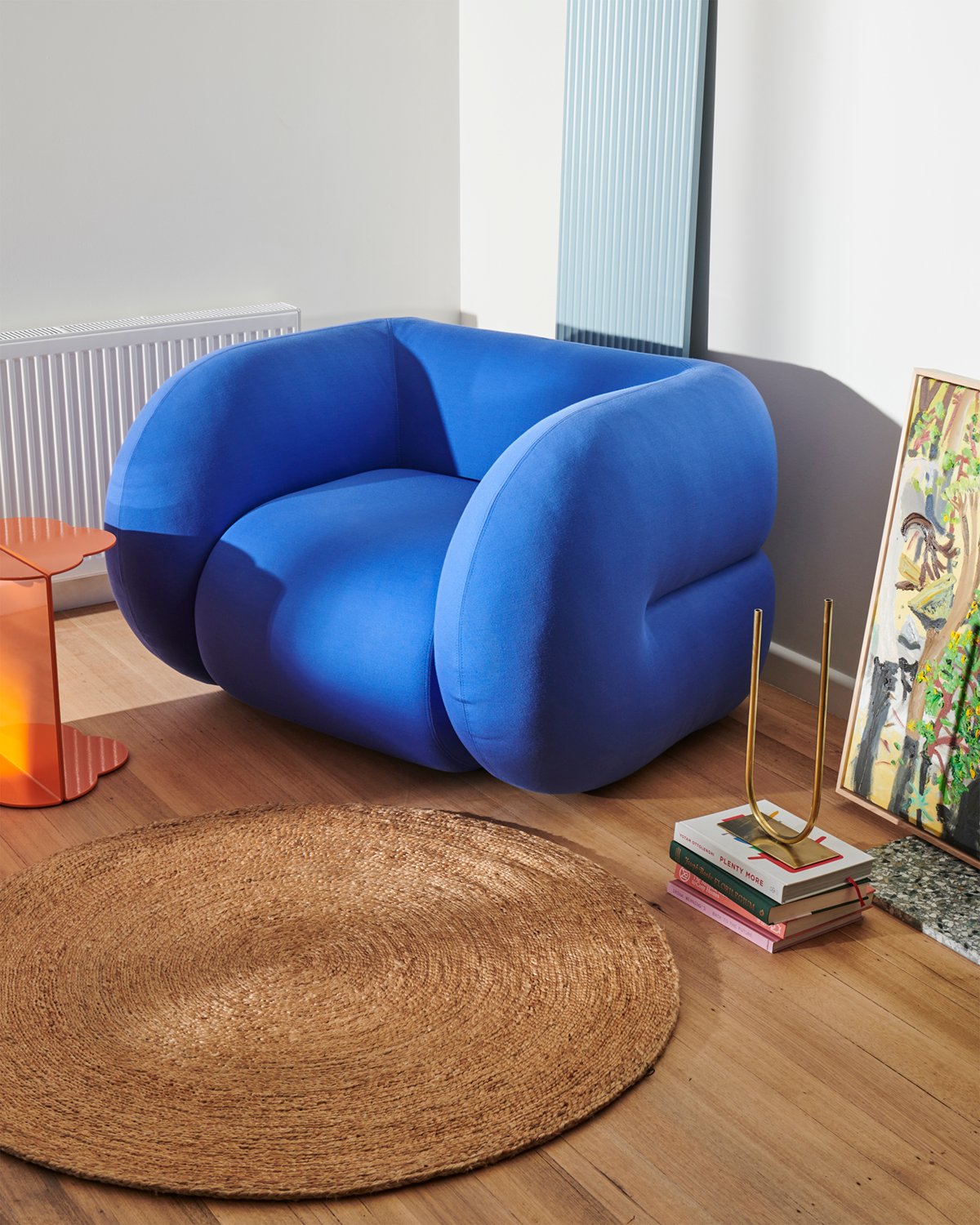
Beyond Furniture: Expanding Horizons
Hardiman’s curiosity and drive extend far beyond traditional furniture design. “Over the last few years, Dowel Jones has become a lot more fluid. We released our first limited edition collection of pieces on the 1st of September in collaboration with Acid Flwrs, and we were surprised to sell out in one day,” he reveals. This venture into limited editions and unconventional collaborations underscores Hardiman’s commitment to exploring new territories.
The brand is also venturing into apparel, a decision influenced by their engaged social media community. “We’re also about to produce our first run of clothing in the coming weeks! The idea for this came entirely from the audience members on our social media accounts,” Hardiman shares with excitement. Partnering with an Australian clothing manufacturer, Dowel Jones is set to bring its unique design ethos to the fashion world.
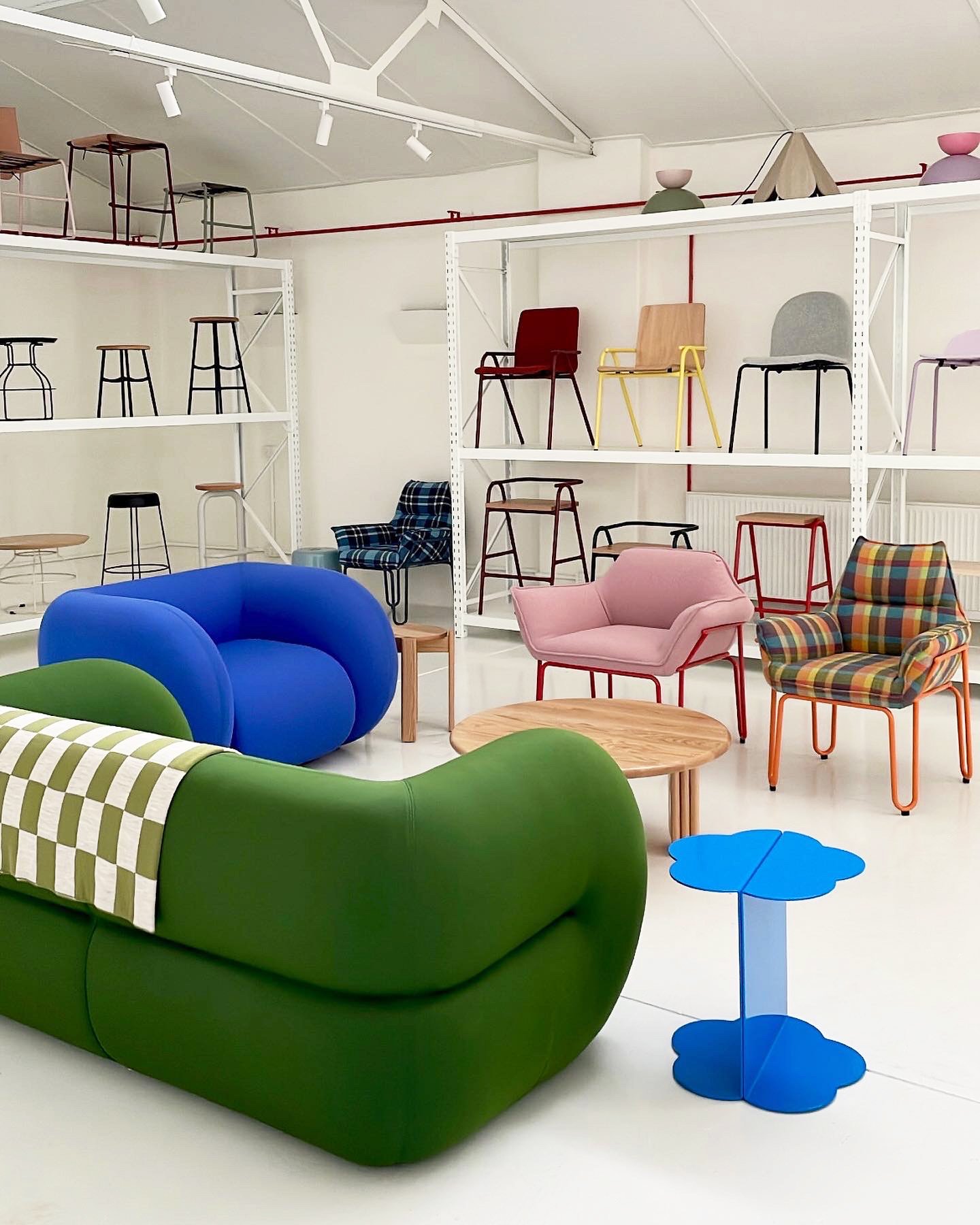
The Impact and Legacy
Dale Hardiman’s influence on the design landscape is profound. Recognized as one of the 100 worldwide game-changers in design by Architectural Digest Italy in 2021, his work continually challenges and redefines the boundaries of design. His projects, whether through Dowel Jones or collaborative ventures like Friends & Associates, consistently interrogate the social, ecological, and political dimensions of materials and systems.
In a world increasingly attuned to sustainability, Hardiman’s approach offers a blueprint for future designers. By emphasizing resource recovery and community-driven projects, he demonstrates that innovative design and environmental responsibility are not mutually exclusive but rather complementary forces that can shape a better future.
As Hardiman looks to the future, his vision remains clear: to continue pushing the envelope, fostering creativity, and ensuring that Dowel Jones remains a beacon of innovative and sustainable design. For a designer whose journey has been anything but ordinary, the future promises to be equally remarkable.
